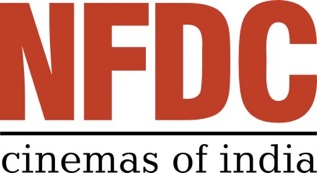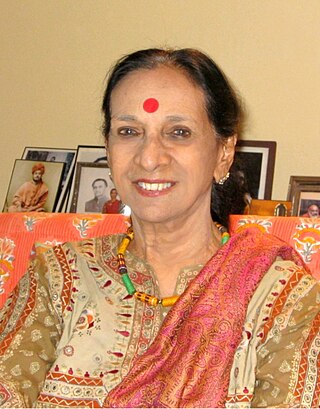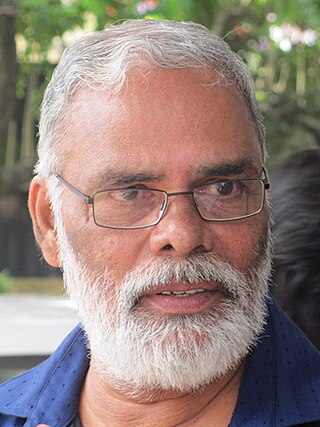
Shyam Benegal is an Indian film director, screenwriter and documentary filmmaker. Often regarded as the pioneer of parallel cinema, he is widely considered as one of the greatest filmmakers post 1970s. He has received several accolades, including eighteen National Film Awards, a Filmfare Award and a Nandi Award. In 2005, he was honoured with the Dadasaheb Phalke Award, India's highest award in the field of cinema. In 1976, he was honoured by the Government of India with the Padma Shri, the fourth-highest civilian honour of the country, and in 1991, he was awarded Padma Bhushan, the third-highest civilian honour for his contributions in the field of arts.

The National Film Development Corporation of India (NFDC) based in Mumbai is the central agency established in 1975, to encourage high quality Indian cinema. It functions in areas of film financing, production and distribution and under the Ministry of Information and Broadcasting, Government of India. The primary goal of the NFDC is to plan, promote and organise an integrated and efficient development of the Indian film industry and foster excellence in cinema.

Nandita Das is an Indian actress and film maker. She has acted in over 40 feature films in ten different languages. Das appeared in the films Fire (1996), Earth (1998), Bawandar (2000), Kannathil Muthamittal (2002), Azhagi (2002),Kamli (2006), and Before The Rains (2007). Her directorial debut Firaaq (2008), premiered at the Toronto Film Festival and travelled to more than 50 festivals, winning more than 20 awards. Her second film as a director was Manto (2018). Based on the life of 20th Century Indo-Pakistani short story writer Sadat Hasan Manto, the film was screened at Cannes Film Festival in the "Un Certain Regard" section. In September 2019, Das produced a two-minute Public Service Announcement music video India's Got Colour. The music video is about the issue of colourism and urges the audience to celebrate India's diversity of skin colour. Her first book, 'Manto & I', chronicles her 6-year long journey of making the film. She wrote, directed, produced and acted in a short film called, Listen to Her, that sheds light on the increase in domestic violence and overburden of work that women have been facing during the lockdown. Also sought petition seeking the commutation of the death sentence handed out to Ajmal Kasab.

Mita Vashisht is an Indian actress. Known for her work on screen, stage and television, she has played a wide range of roles. Her most prominent appearances includes; sci-fi television series Space City Sigma (1989-1991), Pachpan Khambe Laal Deewarein, Swabhimaan, Alaan (Kirdaar) to Trishna in Kahani Ghar Ghar Ki and Jethi Maa in Kaala Teeka to film roles with a wide spectrum of directors with different cinema styles.

The Directorate of Film Festivals in India was an organisation that initiated and presented the International Film Festival of India, the National Film Awards and the Indian Panorama. Although the Directorate helped appoint members of the jury panels each year, it had no input on which films are selected for consideration and which films ultimately win awards at the various functions it initiates.

Mrinalini Vikram Sarabhai was an Indian classical dancer, choreographer and instructor. She was the founder and director of the Darpana Academy of Performing Arts, an institute for imparting training in dance, drama, music and puppetry, in the city of Ahmedabad. She received Padma Bhushan in 1992 and Padma Shri in 1965. She also received many other citations in recognition of her contribution to art.

T. V. Chandran is an Indian film director, screenwriter, and actor, predominantly working in Malayalam cinema. Born in a Malayali family in Telicherry, Chandran worked as a Reserve Bank of India employee before entering the film industry. He started his film career as an assistant director to P. A. Backer. He also acted the lead role in Backer's highly acclaimed political drama Kabani Nadi Chuvannappol (1975). He made his directorial debut with the unreleased feature Krishnan Kutty (1981), and followed this with the Tamil film Hemavin Kadhalargal (1985). Chandran came into prominence after Alicinte Anveshanam (1989), which was nominated for the Golden Leopard at the Locarno International Film Festival. This was followed with Ponthan Mada (1993), his most famous film to date. Chandran is most known for his art-house films which have references to history and undertones of politics and feminism. He is also known for his trilogy on 2002 Gujarat riots, consisting of Kathavasheshan (2004), Vilapangalkappuram (2008) and Bhoomiyude Avakashikal (2012). Other highly acclaimed films include Mangamma (1997), Dany (2001) and Paadam Onnu: Oru Vilapam (2003).

Sai Parānjpye is an Indian movie director and screenwriter. She is the director of the award-winning movies Sparsh, Katha, Chasme Buddoor and Disha. She has written and directed many Marathi plays such as Jaswandi, Sakkhe Shejari, and Albel.
Patna Film Festival is an international film festival in Patna, India. Participant countries include Iran, Canada, China, Japan, Sweden, Germany, Russia, the United States, and India. Patna Film Festival started in 2006. It was jointly organised by the Ministry of Information and Broadcasting, National Film Development Corporation (NFDC), directorate of the film festival, National Film Archive of India, Federation of Film Societies of India, and the state government.

Kidar Nath Sharma, also Kedar Sharma, was an Indian film director, producer, screenwriter, and Lyricist of Hindi films. While he had great success as a director of such movies as Neel Kamal (1947), Bawre Nain (1950) and Jogan (1950). He is most remembered for starting the acting careers of popular Bollywood actors like Madhubala, Geeta Bali, Raj Kapoor, Mala Sinha, Bharat Bhushan and Tanuja.
Arif Zakaria is an Indian actor. He has had roles in many films, beginning with his debut film Darmiyaan (1997), 1947: Earth (1998), Dance Like a Man (2004), and biographical projects Mardana and the controversial Nanak Shah Fakir.

Talakadu Srinivasaiah Nagabharana, commonly known as T. S. Nagabharana, is an Indian film director, in the Kannada film industry and a pioneer of parallel cinema. He is one of the few film directors to have straddled the mainstream and parallel cinema worlds.

Dhvani Desai is an Indian animation filmmaker, curator and poet. She is best known for her artistic animated films Manpasand and Chakravyuh.
Anjuli Shukla is an Indian cinematographer and film director. She is the first and till date the only Indian woman who has won the National Film Award for Best Cinematography. Kutty Srank, her debut film, won her the National Film Award for Best Cinematography in 2010. Her recent direction, ‘Happy Mothers Day’ a feature film by Children's Film Society, India (CFSI) was the opening film for the 19th Edition of the International Children's Film Festival India (ICFFI). An alumnus of the Film and Television Institute of India, Shukla started her career as an assistant to cinematographer and director Santosh Sivan before making her feature film debut.
Datla Venkata Suryanarayana Raju, better known as D. V. S. Raju was an Indian film producer known for his works in Telugu Cinema and Bollywood. He was instrumental in shifting the Telugu film industry from Chennai to Hyderabad. He was the recipient of the Raghupathi Venkaiah Award, the Bhishma Award and the Padma Shri for his contributions to Indian cinema.

Pankaj Advani was an Indian film director, editor, screenwriter, photographer, theatre director, and painter, known for his works in Bollywood, and cross over cinema. Pankaj made his Hindi film screenwriting debut with Kabhi Haan Kabhi Naa (1993) which went on to win the Filmfare Critics Award for Best Movie.
The Films Division of India (FDI), commonly referred as Films Division, was established in 1948 following the independence of India. It was the first state film production and distribution unit, under the Ministry of Information and Broadcasting, Government of India, with its main intent being to "produce documentaries and news magazines for publicity of Government programmes" and the cinematic record of Indian history.

Kollam Municipal Corporation (KMC) is an ISO 9001:2015 certified civic body that governs the city of Kollam in the Indian state of Kerala. It is the fourth-largest city corporation by population in the state, and the fifth-largest by area. Constituted in 1903 it was officially recognized as a city corporation in 2000. The body governs an area of 73.03 square kilometres (28.20 sq mi) centered at Kollam, with about 55 divisions and a population of 397,419.

Doghi is a 1995 Indian Marathi film directed by filmmaker duo Sumitra Bhave–Sunil Sukthankar and produced by National Film Development Corporation of India in association with Doordarshan. The film won three awards at the 43rd National Film Awards in 1995; the Best Film on Other Social Issues, the Best Female Playback Singer, and a Special Mention for Uttara Baokar and nine awards including the Best Film at 32nd Maharashtra State Film Awards in 1996.

Sumitra Bhave and Sunil Sukthankar were an Indian filmmaker duo working predominantly in Marathi cinema and Marathi theatre. Bhave and Sukthankar had made seventeen feature films, more than fifty short films, and four TV serials; all of which had been written by Bhave. Sunil Sukthankar, a Film and Television Institute of India graduate (1989) is also an actor and a lyricist. He has written more than 90 songs for their own films as well as various other Marathi and Hindi films. The duo had won various national and international accolades for the films Doghi (1995), Dahavi Fa (2002), Vastupurush (2002), Devrai (2004), Astu (2016) and Kaasav (2017). At the 64th National Film Awards, their feature film Kaasav won the prestigious President Golden Lotus National Award.















